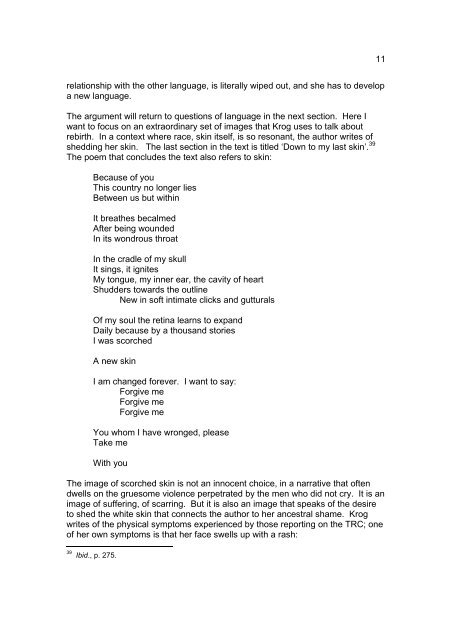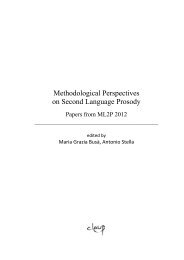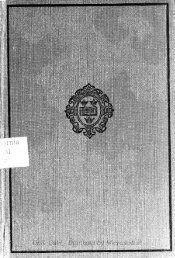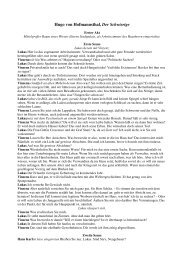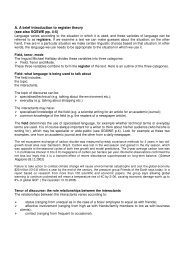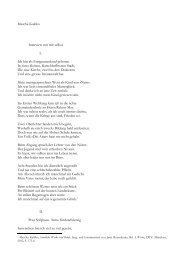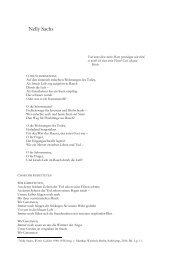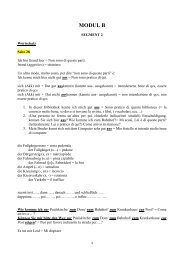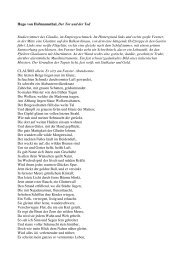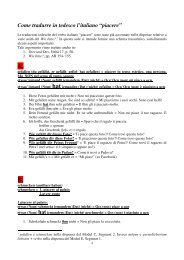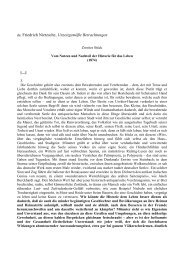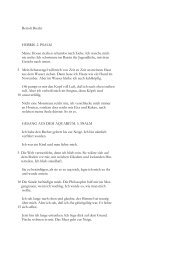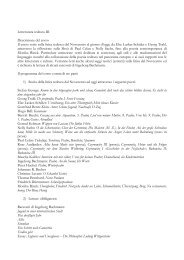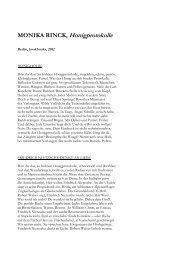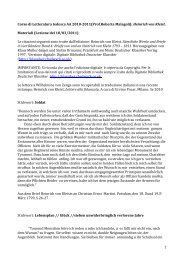1 They Never Wept, the Men of my Race: Antjie Krog's Country of my ...
1 They Never Wept, the Men of my Race: Antjie Krog's Country of my ...
1 They Never Wept, the Men of my Race: Antjie Krog's Country of my ...
You also want an ePaper? Increase the reach of your titles
YUMPU automatically turns print PDFs into web optimized ePapers that Google loves.
11<br />
relationship with <strong>the</strong> o<strong>the</strong>r language, is literally wiped out, and she has to develop<br />
a new language.<br />
The argument will return to questions <strong>of</strong> language in <strong>the</strong> next section. Here I<br />
want to focus on an extraordinary set <strong>of</strong> images that Krog uses to talk about<br />
rebirth. In a context where race, skin itself, is so resonant, <strong>the</strong> author writes <strong>of</strong><br />
shedding her skin. The last section in <strong>the</strong> text is titled ‘Down to <strong>my</strong> last skin’. 39<br />
The poem that concludes <strong>the</strong> text also refers to skin:<br />
Because <strong>of</strong> you<br />
This country no longer lies<br />
Between us but within<br />
It brea<strong>the</strong>s becalmed<br />
After being wounded<br />
In its wondrous throat<br />
In <strong>the</strong> cradle <strong>of</strong> <strong>my</strong> skull<br />
It sings, it ignites<br />
My tongue, <strong>my</strong> inner ear, <strong>the</strong> cavity <strong>of</strong> heart<br />
Shudders towards <strong>the</strong> outline<br />
New in s<strong>of</strong>t intimate clicks and gutturals<br />
Of <strong>my</strong> soul <strong>the</strong> retina learns to expand<br />
Daily because by a thousand stories<br />
I was scorched<br />
A new skin<br />
I am changed forever. I want to say:<br />
Forgive me<br />
Forgive me<br />
Forgive me<br />
You whom I have wronged, please<br />
Take me<br />
With you<br />
The image <strong>of</strong> scorched skin is not an innocent choice, in a narrative that <strong>of</strong>ten<br />
dwells on <strong>the</strong> gruesome violence perpetrated by <strong>the</strong> men who did not cry. It is an<br />
image <strong>of</strong> suffering, <strong>of</strong> scarring. But it is also an image that speaks <strong>of</strong> <strong>the</strong> desire<br />
to shed <strong>the</strong> white skin that connects <strong>the</strong> author to her ancestral shame. Krog<br />
writes <strong>of</strong> <strong>the</strong> physical symptoms experienced by those reporting on <strong>the</strong> TRC; one<br />
<strong>of</strong> her own symptoms is that her face swells up with a rash:<br />
39 Ibid., p. 275.


